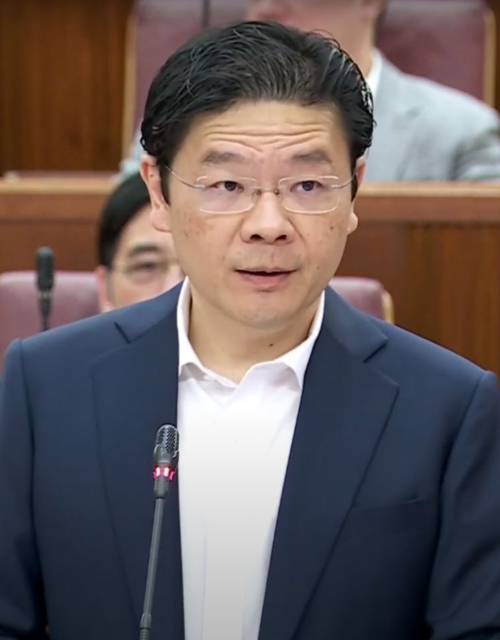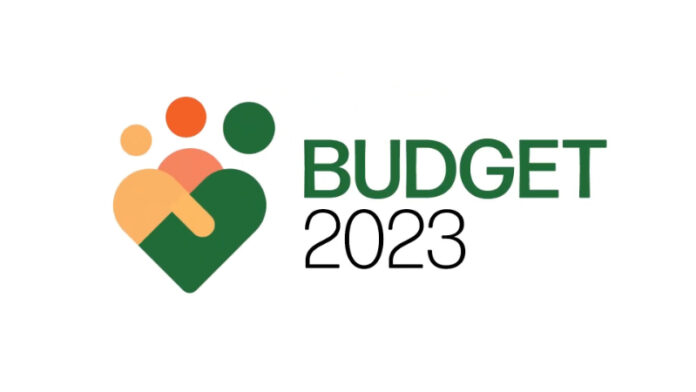Despite the punishing effects of the COVID-19 pandemic on Singapore’s economy, industries that were most affected are now seeing continued recovery.
This was Deputy Prime Minister and Finance Minister Lawrence Wong’s takeoff point, as he delivered Singapore’s 2023 Budget statement at the Parliament House last February 14.
According to Wong, demand has picked up for sectors like F&B and retail. Meanwhile, construction activities are now back in full swing.
Moreover, air travel has resumed, and Changi Airport is “buzzing with life.”
Even when dealing with global inflation in 2022, Singapore managed to grow its economy by 3.6%. Meanwhile, the resident unemployment rate was at 2.8% in December 2022, a figure which is lower than pre-pandemic levels.
Despite these, Wong admitted that Singapore continues to be in a tight fiscal position, therefore announcing a series of investments coming into the new fiscal year.
Staying competitive
Due to several geopolitical headwinds — particularly the ongoing war in Ukraine, and the intensified power contestation between the United States and China — businesses are undertaking major reorganisational moves.
These, according to the Minister, are major concerns for a country like Singapore.
“More and more MNEs (multinational enterprises) are looking to re-shore, on-shore, or near-shore — that is, relocating factories and offices to places where they are less likely to get caught in geostrategic crossfires,” Wong said.
Therefore, Singapore should expect greater contestation and fragmentation in the global economy.
“Countries are thinking less about mutual benefit and interdependence, and more about national gain and security. An era of zero-sum thinking has begun. It will be a world that is less hospitable to small economies like Singapore, which have long thrived on an open, rules-based multilateral system,” the Minister revealed.
“We therefore cannot assume that we can continue to be successful by doing the same things as we have in the past. We will need to adjust to this new era, reposition our economy, and refresh our social compact for the future,” he continued.
In response to these looming threats, Wong announced a top up of SG$4 billion to the National Productivity Fund, and plans to expand the fund’s scope to include investment promotion as a supportable activity.
“We will use the fund to anchor more quality investments here. This includes supporting companies to build new capabilities, add greater value to our domestic ecosystems, and upskill our workers. Ultimately, these efforts will lead to better paying jobs for Singaporeans,” the Minister explained.
Raising the R&D game
Realising that the country needs to continue differentiating itself from its peers in terms of quality and value of its products, the Minister has introduced a new Enterprise Innovation Scheme, which seeks to reward more tax benefits to R&D initiatives.
The scheme will significantly raise the tax deductions for five key activities in the innovation value chain:
- R&D conducted in Singapore.
- Registration of intellectual property, including patents, trademarks, and designs.
- Acquisition and licensing of intellectual property rights.
- Innovation carried out with Polytechnics and ITE.
- Training via courses approved by SkillsFuture Singapore and aligned to the Skills Framework.
Currently, businesses can enjoy tax deductions of up to 250% on some of these activities. Wong announced that he will raise the tax deductions to 400% of qualifying expenditure on each of these five activities.
The qualifying expenditure will be capped at SG$400,000 for each activity, except for innovation carried out with Polytechnics and ITE, for which the expenditure will be capped at SG$50,000, Wong said.
“Some firms have yet to turn profitable, or do not have sufficient profits to maximise the benefits from the tax deductions. To cover these firms, I will allow businesses the option to convert 20% of their total qualifying expenditure per Year of Assessment into a cash payout of up to SG$20,000. This will help smaller firms defray the costs of their innovation activities, even if they pay little or no taxes,” he further explained.
This initiative is on top of the SG$25 billion previously announced investment for R&D, until 2025.
SME boost

For small and medium enterprises, Wong announced an additional injection of SG$150 million, via the SME Co-Investment Fund, following positive outcomes on earlier SME funding boosts.
“We will use this to invest in promising SMEs, and we will also aim to catalyse an additional $300 million of private investments to support our SMEs,” he said.
The Singapore government has previously mobilised investments in SMEs through Heliconia Capital, which deploys equity financing. So far, SG$1 billion have been committed in this effort, which has since benefitted 60 Singapore-based companies. This, in turn, enabled around SG$2 billion additional investments for these businesses.
“The total revenue of this portfolio of companies has more than doubled after this investment, and over half of them have developed new capabilities or expanded beyond Singapore,” Wong said.
Going global
Having introduced the Singapore Global Enterprises initiative during the 2022 Budget, the Minister has now set aside SG$1 billion to further strengthen Singapore enterprises into becoming global leaders.
Under the initiative, promising companies will be offered specialised capability-building programmes tailored to their needs. This, said Wong, could involve working with experts to strengthen the core leadership team, accelerate their internationalisation plans, and build a strong talent pipeline.
Meanwhile, Enterprise Singapore will also support these companies to secure resources to execute their growth plans, and build sustained research and innovation capabilities. According to the Minister, this aid will enable these companies to strengthen their value proposition and stay competitive.
Human capital
While the country has been making great strides with its SkillsFuture initiative, and has helped Singaporeans upskill regardless of age, Wong acknowledged that more had to be done in light of economic disruptions.
For the 2023 budget, the focus will be on ensuring that training translates into good employment outcomes, he said.
“We all know that it is good to have more skills training. But training programmes can vary in quality. Some lead to recognised certifications, or help workers gain specialised skills that are sought after by the industry. But others may not be so relevant to industry needs,” the Minister observed.
Some of the roadblocks in this area are workers’ lack of knowledge about which training programmes to go for, or what skills and competencies they need to land better jobs, as well as employers’ unfamiliarity with the training landscape.
To address this disconnect, jobs-skills integrators shall be appointed with the following duties:
- Engaging enterprises to understand the manpower and skills gap in the sector.
- Working with training providers to update existing training programmes, or develop new ones that will close the skills gap.
- Working closely with employment facilitation agencies, getting buy-in from industry partners and unions, and identifying individuals with the right aptitude and fit
for training. Most importantly, they must ensure that training translates into better employment and earnings prospects.
As per Wong, the jobs-skills integrators can be existing institutions, and will be piloted in the precision engineering, retail, and wholesale trade sectors, where there are higher concentrations of mature workers and SMEs.
Slowly but surely
Based on current global indications, Singapore can expect positive but slower economic growth this year, which shall be between 0.5% to 2.5%.
“Our economic fundamentals remain strong. Our handling of the pandemic over the past three years has enhanced our reputation as a reliable and trusted node in global supply chains. Our deep relationships with both the US and China, as well as our partners in ASEAN and the wider region, make us a neutral and increasingly important place for global and regional businesses,” Wong said.
Hence, Singapore will take full advantage of these opportunities to attract new flows of investments, capital, talent, and ideas.
“All these will add vibrancy to our economy and create more good jobs for Singaporeans,” he said.
















